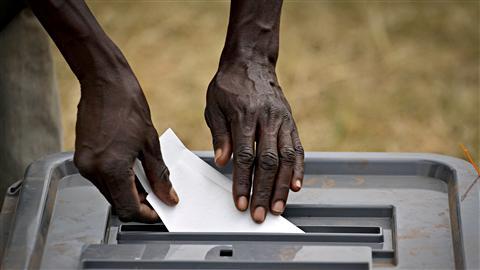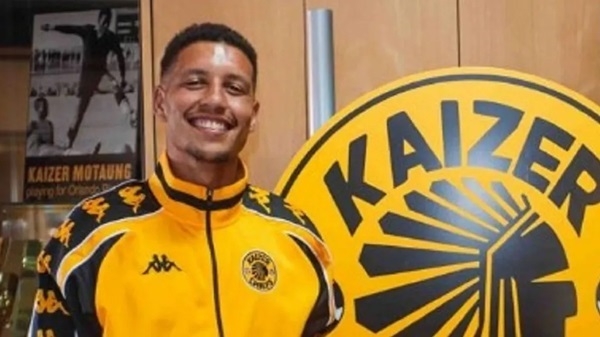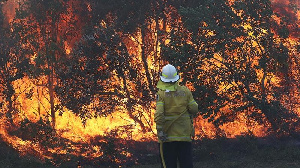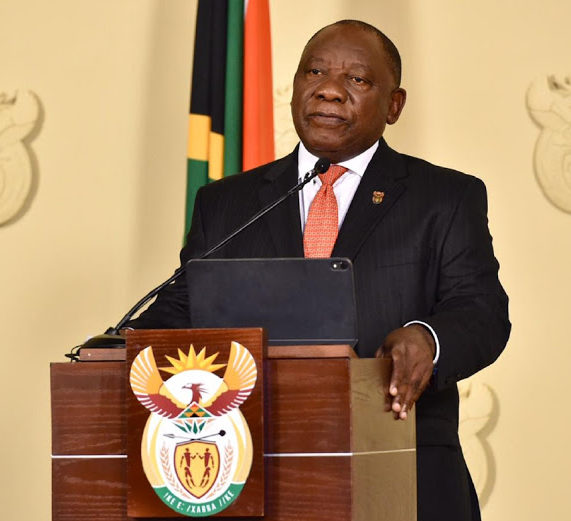Closest election in 30 years as South Africans vote

South Africans are voting in the most pivotal election since the racist system of apartheid ended in 1994, which could see the African National Congress (ANC) lose its majority for the first time in 30 years.
As he cast his vote in Soweto, President Cyril Ramaphosa said he had “no doubt” that people would once more show confidence in the ANC.
John Steenhuisen, leader of the opposition Democratic Alliance (DA), described the poll as the first opportunity for change in 30 years.
Voting has been smooth overall, but some people have been turned away due to a rule change which requires them to vote where they registered.
Support for the ANC has waned over the years because of anger over high levels of corruption, crime and unemployment.
More than 27 million people are registered to cast their ballots in a poll that highlights growing political fragmentation in the country.
A record 70 parties and 11 independents are contesting, with South Africans voting for a new parliament, and nine provincial legislatures.
“The huge growth in parties shows disillusionment with the old big parties or, cynics would say, people are looking for an opportunity to get into parliament and earn a pension,” political analyst Richard Calland told the BBC.
In power since anti-apartheid icon Nelson Mandela led it to victory at the end of white-minority rule, the ANC is seeking a seventh term in office.
Opinion polls have consistently suggested that the party will lose its parliamentary majority for the first time, forcing it to enter into a coalition with one or more opposition party.
“We are entering the next phase of our democracy, and it is going to be a big transition,” Prof Calland told the BBC.
“We will either become a more competitive and mature democracy, or our politics will become more fractured,” he added.
There is no direct election for the president – the new National Assembly chooses the president, who is normally the leader of the majority party.
The campaign has been dominated by widespread corruption in government, crushingly high levels of unemployment, especially among the youth, deteriorating public services and rampant crime.
The DA has signed a pact with 10 other parties, agreeing to form a coalition government if they get enough votes to dislodge the ANC from power.
But this is highly unlikely, with the ANC expected to remain the biggest party, putting it in pole position to lead a coalition.
It got 57.5% of the vote in the last election compared to the DA’s 21%.
Former President Jacob Zuma caused a major shock when he announced in December that he was abandoning the ANC to campaign for a new party, uMkhonto weSizwe (MK), which translates as Spear of the Nation.
Although he has been barred from running for parliament because of a conviction for contempt of court, his name will still appear on the ballot paper as MK leader.
Opinion polls suggest MK will get about 10% of the vote. It is expected to do especially well in his home province of KwaZulu-Natal, where tensions have been high, with some incidents of violence reported during the campaign.
“The election in KwaZulu-Natal could become very messy – expect a lot disputes and contestation over the results,” Prof Calland said.
Women make up 55% of registered voters – around 15 million, according to statistics released by the electoral commission.
In terms of age group, voter registration is highest among those who are 30 to 39 years old. They make up almost seven million of the 26.7 million voters.
But, said, Prof Calland, around 13.7 million eligible voters did not register, with most of them – eight million – below the age of 30.
“They have turned their backs on our young democracy. The assumption is that they have lost hope, feeling economically excluded and seeing no viable opposition,” he added.
This view was borne out by 29-year-old Keabetswe Maleka, who lives in Soweto, which was the epicentre of a student uprising against apartheid in 1976.
He told BBC Africa Daily podcast presenter Mpho Lakaje, he would not be voting because of bad public services, and because he is unemployed.
“I’m looking for a job. Nothing is happening,” he said.
Another Soweto resident, Mawela Rezant, 66, said he would definitely be voting in the hope that the next government would tackle unemployment and crime.
“I’m hoping to see our economy grow. I’m hoping to see the police out in full force,” he added.
Police and the army have been deployed to polling stations across the country to ensure that voting takes place peacefully, and that ballot papers are not stolen.
Source: bbc.com





